An Actual Sequence View of Freedom

Interview by Richard Marshall.
(Images: Bela Tarr)

'van Inwagen thinks we can bypass these issues because the real threat to our free will is not causal determination (our acts having deterministic causes) but simply determination (our acts being necessitated by past events and the natural laws), since this is enough to guarantee that we cannot ever do otherwise. I think this is wrong, in that the problem only arises given that we don’t have any causal control over the (remote) past.'
' I think that the connection between causation and free will has been way underappreciated. How our acts are brought about, or the causal history of our acts, is clearly relevant to our freedom. Think about severe forms of coercion, manipulation, brainwashing, or compulsion. '
'Frankfurt famously argued ... that the appearance that freedom requires open alternatives is just an illusion generated by the fact that, typically, when we don’t have alternatives and don’t act freely (say, when we are the victims of coercion), the factors that rule out the alternatives are the same factors that drive us to act (the coercive threat).'
' The core of my account is the thought that when we act freely we are sensitive to reasons in the appropriate way. '
Carolina Sartorio works on causation, agency, free will, moral responsibility, and other issues at the intersection of metaphysics, the philosophy of action, and moral theory. Here she discusses whether causal determination plays a role in freewill, van Inwagen's position, why she disagrees with van Inwagen and thinks causation does have a role, Frankfurt, Fischer Ravizza, the actual sequence view of freedom, metaphysical assumptions and wiggle room, supervenience, reasons sensitivity and incompatibilist push-backs.
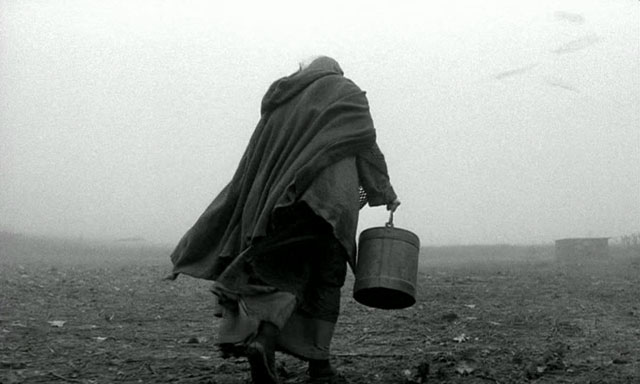
3:16: What made you become a philosopher?
Carolina Sartorio: I grew up in Buenos Aires, in a family of architects. Growing up I had no clue what I wanted to do (but I knew I couldn’t be an architect; I obviously didn’t have the skills…). At one point I realized that what I enjoyed most was abstract thinking, and that narrowed my choice down to two fields: math and philosophy (not really knowing what philosophy was about yet). Universities in Argentina force you to choose a particular field of study (a single one) when you enroll, so I enrolled in math (somehow it struck me as a “safer” career choice). That was fun, but after a couple of years I realized that I was missing some meaningful content from my studies. I took a gamble and switched to philosophy, where (thanks to a few philosophers at the University of Buenos Aires immersed in the analytic tradition) I learned that one could do rigorous thinking about problems that I deeply cared about and that math and science couldn’t help with. That’s when I discovered the value of philosophy.
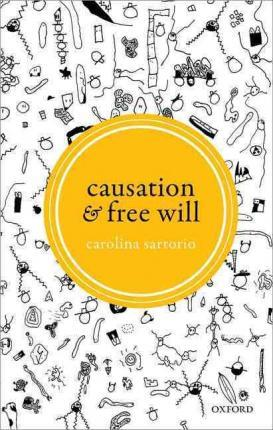
3:16: You’ve looked at the challenges of determinism to our idea of free will. Causation is given a prominent role by some, but others, like van Inwagen, give it no role. Is van Inwagen right to say that causal determination plays no role and that the problem is pure determinism? What’s his argument – and why do you say causation still plays a role even if we concede his point?
CS: Causation is one of the most fruitful concepts in philosophy (as evidenced by the fact that there are causal theories of action, reference, perception, knowledge, and more), but it is at the same time one of the most intriguing and controversial. It has famously resisted analysis in terms of more basic concepts (although a few brave souls keep trying!); on the other hand, it is also hard to believe that it’s a primitive, unanalyzable notion. Hence the mystery surrounding causation. van Inwagen thinks we can bypass these issues because the real threat to our free will is not causal determination (our acts having deterministic causes) but simply determination (our acts being necessitated by past events and the natural laws), since this is enough to guarantee that we cannot ever do otherwise. I think this is wrong, in that the problem only arises given that we don’t have any causal control over the (remote) past. If we had that kind of control over the past (say, if we could travel back in time and causally influence the past), then it wouldn’t be a challenge to our free will if our acts were determined by past events, given that those past events themselves would be partly under our control. For this reason, I think that causation (or the concept of what is/is not under our causal control) has an important role to play in the generation of the problem of determinism and free will.
3:16: You also argue that if causation has a role in the problem it also has a role in the solution? You talk about the right kind of cause giving us freedom – what’s this?
CS: I think that the connection between causation and free will has been way underappreciated. How our acts are brought about, or the causal history of our acts, is clearly relevant to our freedom. Think about severe forms of coercion, manipulation, brainwashing, or compulsion. Intuitively, it matters if what we do is the result of one of those causal sources or, instead, of an ordinary process of deliberation. So, what I’m after is an account of what makes for a “good” causal history and what makes for a “bad” causal history. A good causal history is one that results in acts that are done freely, and a bad causal history is one that results in acts that are not done freely. Given that I am a compatibilist about the free will problem (that is, I think that the truth of determinism is compatible with acting freely), I believe that “good” causal histories can be deterministic.
3:16: Now to grasp your approach we need to understand what philosophers call the ‘Frankfurt-style’ approach, something for example associated with contemporary philosophers Fischer and Ravizza. So what is this approach, what you label ‘the actual-sequence’ view of freedom?
CS: Fischer and Ravizza actually used this label before me. The main idea is that freedom is just a function of the actual causes or the actual sources of our behavior. The way I see it, this is the simplest view of freedom one could have. (And, unless given good reason to believe otherwise, one should go with the simplest view.) It is the simplest view because, as I mentioned, it is very natural to believe that the actual causes of our behavior matter to whether we act freely. What this view adds is that this is, in fact, all that matters.
Why believe this? Here’s where Frankfurt enters the picture. You might have thought that acting freely also requires open alternatives. This is the classical view of freedom: the view that understands freedom as requiring alternative possibilities or the ability to do otherwise. Frankfurt famously argued against this view. He argued that the appearance that freedom requires open alternatives is just an illusion generated by the fact that, typically, when we don’t have alternatives and don’t act freely (say, when we are the victims of coercion), the factors that rule out the alternatives are the same factors that drive us to act (the coercive threat). This naturally leads us to think that the reason we don’t act freely is that we lack alternatives, when the real reason is that our acts were caused in one of the “bad” ways (they were the result of coercive threats).
To complete his argument, Frankfurt asked us to think of atypical cases: cases where the factors that rule out the alternatives come apart from the factors that cause our behavior. These are the “Frankfurt-style” cases. For example, imagine that unbeknownst to you there is an evil demon (or a resourceful neuroscientist) who wants you to act in a certain way, and is ready to intervene to make you act in that way if you don’t do it on your own. However, imagine that as it happens you do exactly what the demon wants you to do, completely on your own (on the basis of your reasons and deliberation). Intuitively, in that case you act freely, despite the fact that the presence of the demon guarantees that you couldn’t have done otherwise. You act freely because the demon was never part of the causal history of your act; instead, you acted for your own reasons only. Cases of this kind forcefully motivate the thought that having alternative possibilities is, after all, irrelevant: all that matters is the actual causes of the behavior.

3:16: So your version is actual causal sequences (ACS) isn’t it, and it’s a variation on the Fischer Ravizza approach. So where do you think their version doesn’t work? What doesn’t it explain?
CS: The main point of divergence between our approaches is that I want to take really seriously the idea that freedom is only a function of actual causes. I see this as the central thesis that ACS stands for (besides standing for my full name spelled out—ha, ha). It’s a reaffirmation of the basic insight that Frankfurt had. In contrast, the Fischer-Ravizza approach ends up appealing to properties of the actual mechanisms that are purely “modal” (they have to do with what happens in other possible scenarios, and are not actually explanatory of the behavior). I think that this is a significant departure from Frankfurt’s fundamental insight, and that we can do better.
Another important point of divergence is the emphasis I place on the metaphysics of causation. As I noted above, I think we shouldn’t shy away from the concept of cause that is lurking behind an actual-sequence view of freedom. On the contrary, we should bring it to the surface and exploit the important connections that exist between causation, free will, and responsibility. There are significant advantages to doing this. One is that it can be key at the time of defending the view from objections (such as showing that potential counterexamples to the view are not real counterexamples). Another is that it results in a unified picture of freedom, and one that works as a natural extension of the standard (also “causalist”) picture of agency.
3:16: You assume a single concept of causation but you think you could restate your approach to accommodate more than one, or even quasi-causal concepts. Doesn’t this mean that the metaphysics would need to be revised and notoriously, since changing one thing in a metaphysical system can be disastrous for the whole? How confident are you that your metaphysical assumptions are robust enough to deal with any required adjustment?
CS: There is some wiggle room in my view. The main reason is that, like many others, I want to accommodate the possibility of responsibility involving omissions or non-doings (for example, the kind of responsibility you might bear for not taking good care of your pet: not because you actively harm your pet, but because you neglect him). But omissions raise special challenges for a pure causalist view, given the controversy surrounding the nature of omissions and their causal powers. Some think that omissions cannot enter in causal relations because they are absences, and thus nothing at all, and something that is nothing at all can have no causal powers. Still, those philosophers (very reasonably) tend to think that there are other ways to account for our responsibility in those cases.
A common strategy is to suggest that omissions can be quasi-causal or explanatory in some way, even if they are not literally causal. I want to remain neutral on these metaphysical debates (after all, it would be strange if a view of free will had to take a stand on issues of this kind), so what I propose is that these quasi-causal or explanatory concepts can take the place of full-blooded causation, if needed. I think this the right approach to take. Clearly, our responsibility doesn’t hinge on the outcome of metaphysical inquiries such as the discovery that omissions can or cannot be causes. Surely, if omissions cannot be causes, there is some other way to blame you for having neglected your pet that appeals to some explanatory connection between what you did (or failed to do) and what happened to the poor animal. This is all the view really needs.
3:16: How do you understand the supervenience claim that freedom supervenes on actual causal histories? (Supervenience is a term of art for philosophy specialists so you may well want to explain what it is and how it works).
CS: The supervenience claim follows from the thesis that freedom is only a function of actual causes. Basically, it says that the actual causal history of an act “fixes” its status as a free or unfree act. In other words, if the causal history of two acts is the same, then the acts are equally free or unfree. I’ll illustrate with the demon example again. For all you know, there might be a demon monitoring your thoughts right now, ready to manipulate you into doing certain things, but the demon never intervenes because you do everything on your own that he wants you to do. The supervenience claim entails that the existence of such a demon (one that never intervenes) wouldn’t matter to your free will. For your acts would have the same causes in a scenario where there is no demon as in a scenario where the only difference is that there is a demon that never actually intervenes. As a result, if you act freely in the scenario without the demon, you also act freely in the scenario with the demon that doesn’t intervene.
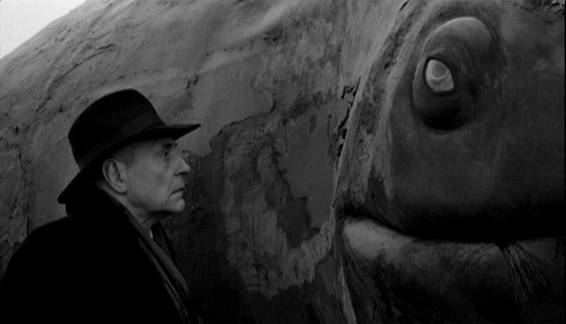
3:16: You defend a reasons-sensitivity account of freedom. Is it conceptually possible to give an adequate reasons-sensitivity account in terms of actual causes only? How do absences of reasons play a role?
CS: The core of my account is the thought that when we act freely we are sensitive to reasons in the appropriate way. The concept of reasons-responsiveness has often been regarded as relevant to our free will. But it is usually seen as a dispositional or modal concept: as a concept that has to do, not with our actual responses, but with our responses in hypothetical scenarios different from the actual. Against this tradition, I formulate an account of reasons-sensitivity just in terms of actual causes or actual explanations.
On this view, free acts have more complex explanations than, say, compelled acts, in a way that reflects that sensitivity to reasons. Imagine that you have an irresistible compulsion to eat an apple every hour of your waking life. Every time you eat an apple out of this compulsion, the immediate causal history of your act is relatively quite simple: it includes, most notably, a strong desire to eat the apple. In comparison, consider a case where you suddenly feel the urge to eat an apple and you eat it, but you do so freely (not out of compulsion). I suggest that the explanation of your act is much more complex in this case. For example, it is likely to include things such as the fact that you don’t believe the apple will give you a stomachache, the fact that you don’t believe that you are harming others by eating the apple (say, because they also really want to eat it), etc. All of these things are part of the full explanation of your eating the apple. This is so even if it never even crossed your mind that this is partly why you are doing it (you don’t have to be conscious of all of the causes of your act for them to be causes). In contrast, the compulsive apple-eater is not being sensitive to considerations of this kind: given his compulsion, he is drawn to eating that apple basically no matter what; this is why the explanation of his act is much simpler, by comparison.
Now, note that this emphasizes the role played in free action by absences of a certain kind: absences of reasons. Unlike the compulsive, you ate the apple partly because of the absence of a wide range of reasons not to eat it. So, this is another place where absences make an appearance in my view: in the account of reasons-sensitivity. Fortunately, as before, I think we can exploit this feature while remaining neutral on the underlying metaphysics: if absences can be causes, then the relevant absences of reasons will simply be part of the causal history of the act; if absences cannot be causes, then this will have to be recast in terms of quasi-causation or explanation.
3:16: There are many incompatibilist objections to your approach aren’t there? ‘Source incompatibilist’ arguments are pretty strong – can you sketch what these arguments claim and how your approach defeats them?
CS: Source-incompatibilist arguments attempt to show that determinism undermines free will, not because it rules out alternative possibilities, but because of the kinds of causal sources that our acts have if determinism is true. For example, “ultimacy” arguments claim that determinism entails that we are not the ultimate sources of our acts (if anything, the ultimate sources are some events in the remote past), and that this undermines our free will. And “direct” arguments proceed by noting that, if determinism is true, we cannot be responsible for anything we do because we are not responsible for the past and the laws being what they are, and we are also not responsible for the fact that the past and the laws necessitate the present facts.
I argue that both of these arguments beg the question against the compatibilist. Basically, this is because what is at issue in the free will debate is precisely whether, in order for us to have free will and be responsible, we must be the ultimate sources of our acts in a sense that requires us to be in control of any sufficient causes of our acts. So you can’t just assume that this is a requirement on free will, if this is what’s being debated.
A different kind of source-incompatibilist argument is a “manipulation” argument. Manipulation arguments attempt to show that determinism undermines free will because there is no relevant difference in our free will between scenarios where our acts are determined and scenarios involving certain forms of manipulation, and in those manipulation cases, the argument goes, it is clear that we lack free will. Imagine that an evil demon intervenes by manipulating some facts of the world at around the time of your birth because he can predict that, given those facts and how the world will evolve in accordance with the laws of nature, you will grow up to be someone who will commit a certain crime as an adult (and he wants you to commit that crime, because he’s evil!). Most people have the intuition that you’re not responsible for committing the crime in this case. But it seems that the compatibilist has a hard time explaining how you can fail to be responsible in this case while being responsible under any circumstances where determinism is true. For, in both cases, what you do is the inevitable result of remote factors that are beyond your control. Although in the manipulation case those causes include another intentional agent (the demon), it couldn’t plausibly matter to your responsibility whether those remote causes involve natural processes or the intervention of another agent.
In response to this argument, I grant that we have the intuition of non-responsibility in the manipulation case, but I argue that it’s not a stable or reliable intuition. Imagine that it wasn’t an evil demon but just a natural phenomenon (say, lightning) that had that sort of influence on the past facts. This changes our intuitions radically: now we’re much less sure that you’re not responsible for committing the crime. Which makes me think that what’s going on in the manipulation case is that the presence of another responsible agent, the evil demon, is messing with our intuitions. The demon is clearly responsible for what you do (unlike lightning!), and this obscures the fact that you are alsoresponsible.
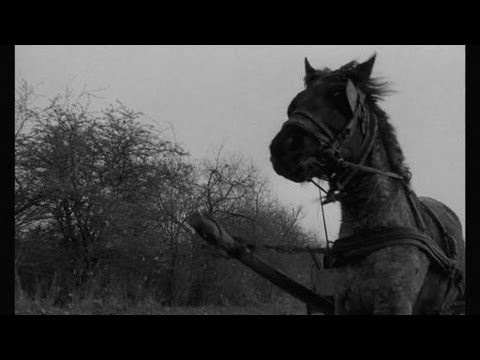
3:16: Is there any one of these kinds of argument – ultimacy, direct or manipulation arguments that remain a serious challenge for you or are you convinced that as things stand you’re confident we can have freewill, and determinism isn’t a barrier?
CS: It is one thing to rebut incompatibilist arguments and another to argue for the compatibility of free will and determinism. I think that, at the end of the day, the motivations behind, for example, the ultimacy argument simply encapsulate the basic incompatibilist intuitions. If one has strong incompatibilist intuitions to begin with, simply pointing out that they can’t be used in an argument against compatibilism without begging the question does nothing to eliminate those intuitions. However, like many other compatibilists, I don’t happen to have such clear incompatibilist intuitions. I don’t think it’s an obvious threat to our free will that everything that happens, including everything we do, can be explained (perhaps deterministically) in terms of prior causes, which can in turn be explained in terms of prior causes, and so on. As rational beings, we expect to find explanations of events in terms of prior events. Are we really inclined to think that our having free will requires those causal or explanatory chains to stop in us, or at the time when we make our first free choice? I, at least, am not.
3:16: van Inwagen just doesn’t want to engage with causation at all when discussing freewill but you presumably did so because you thought the subject requires you to. How far is your approach dependent on getting a metaphysics of causation right – and so how far are you drawing on theories of causation taken from philosophy of science? I guess I’m asking whether your approach to freewill is compatible with approaches to causation found in areas not concerned with freewill in particular but just explanations?
CS: My general approach is compatible with some of those accounts but not with others. As many people have suggested, there likely is more than one legitimate concept of causation. What I’m interested in, naturally, is the concept of causation or explanation that is relevant to responsibility. Surely, there is such a concept. I do think that this concept has a lot in common with one that is widely used by ordinary people and philosophers alike, but I also think that the full details of such a concept are not known (and we might never know them). Fortunately, we don’t have to give a full account of causation in order to give an account of free will—even a causalist account of free will (indeed, I think it would be a mistake to expect any theory of free will to include a theory of causation as one of its elements). Instead, we can just rely on some of the main features of causation, and on the main features of the connection between responsibility and causation. In fact, sometimes we can be more certain about our responsibility judgments than about our causal judgments; in those cases, we can even use the responsibility judgments to draw conclusions about the underlying causal facts. (I do that sometimes in my book.)
3:16: And for the curious readers here at 3:16, are there five books you could recommend that will take us further into your philosophical world?
CS: I have to say, although I’ve myself written a book and I’m very happy to have done so, I still see articles as the “purest” philosophical expression. So, if you don’t mind, I’ll mention a few articles instead:
“Causation” by David Lewis: A classic that originally sparked my interest in the metaphysics of causation.
“Causing and Nothingness” by Helen Beebee: A paper that clearly explains the problem of omissions, why it’s difficult to think of them as having causal powers, and how we can make sense of them as explanatorily relevant anyway.
“Actions, Reasons, and Causes” by Donald Davidson: Another classic paper that established the causalist conception of agency that I (and many others) find attractive.
“Alternate Possibilities and Moral Responsibility” by Harry Frankfurt: Yet another classic; this is the paper that first got me thinking about the underappreciated connection between causation and free will/moral responsibility.
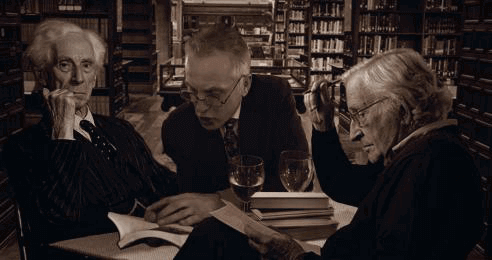
ABOUT THE INTERVIEWER
Richard Marshall is biding his time.
Buy his new book here or his first book here to keep him biding!